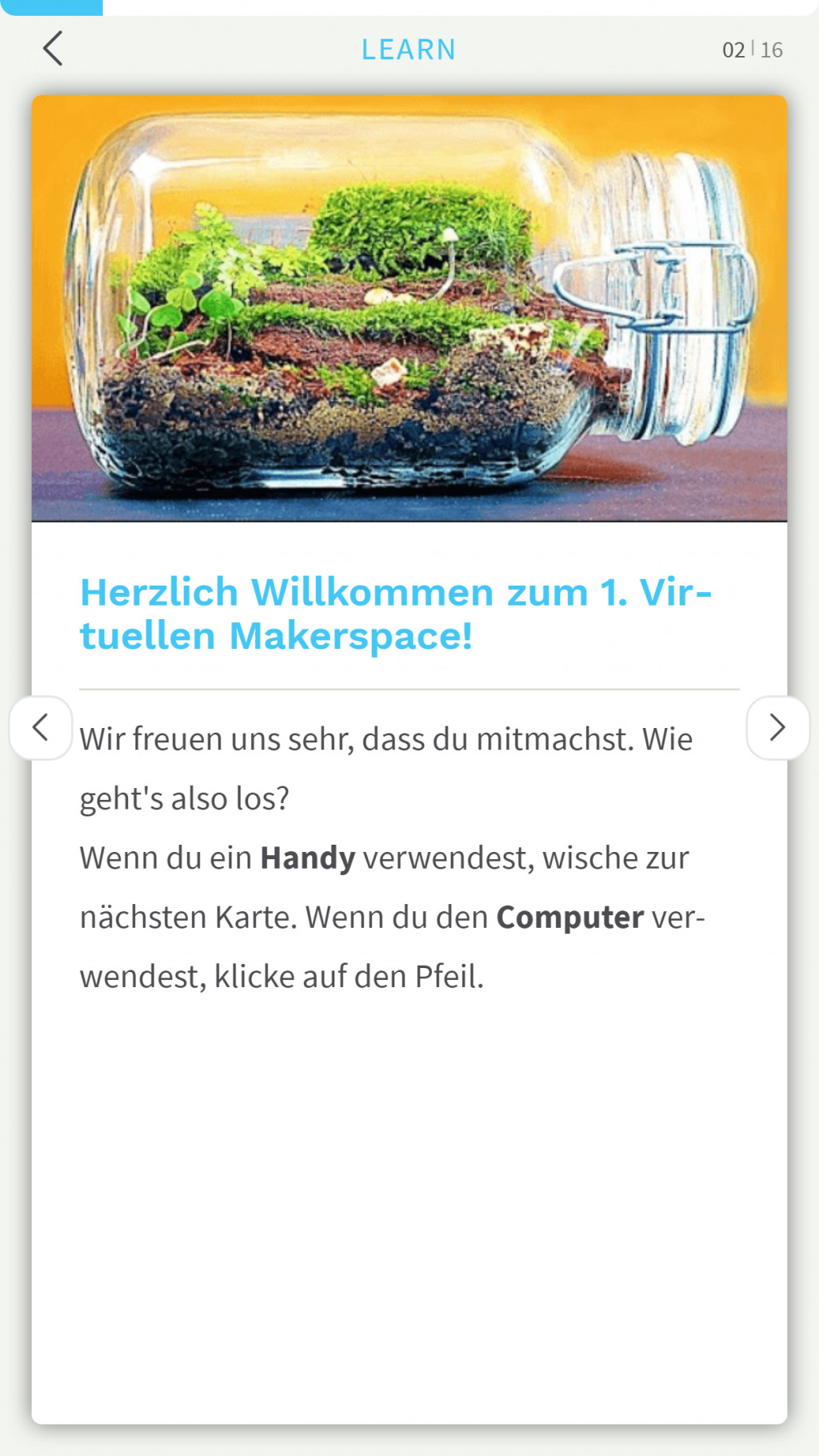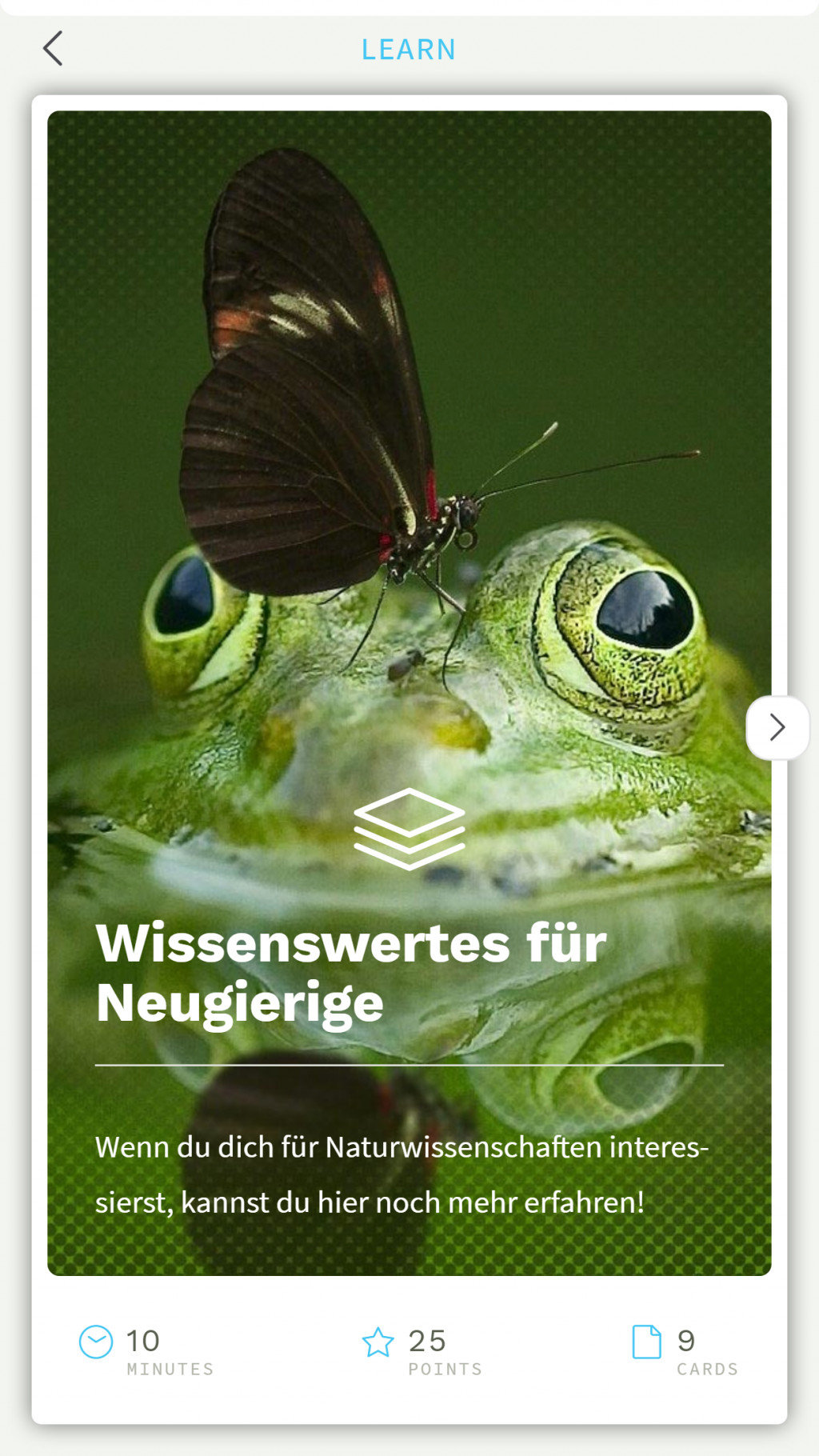Practice Description

Virtual Makerspaces
by ovos media Gmbh + Otelo eGen added on 13 Nov 2020
|
Brief description:
|
Due to the COVID-19 pandemic, schools in Austria were closed by mid-March 2020. This is why ovos and Otelo developed two Virtual Makerspace workshops. These kind of workshops could reach children who were being home-schooled. Otelo produced videos for an instructional step-by-step tutorial which ovos edited and uploaded to the COMnPLAYer app, adding fun pictures, emojis and additional content about science. Each instruction meeting took up to 15 minutes; the facilitator was available in the Zoom meeting for a few hours (2 hours in the first, 2-3 hours in the second); each presentation meeting took 15 minutes. The participants learned how to build a glass terrarium (First Virtual Makerspace) and how to programme a BBC Micro:Bit robot. |
|---|---|
|
Photos:
|
|
|
Countries:
(where the practice takes place)
|
Austria |
|
Cities:
(where the practice takes place)
|
Not taking place at a specific city |
|
Organization name:
(running the practice)
|
ovos media Gmbh + Otelo eGen |
|
Organization type:
|
Commercial |
|
Contact person:
|
Martin Hollinetz, Jörg Hofstätter |
|
Contact email:
(for further information and inquiries)
|
martin.hollinetz@gmail.com |
|
Social media:
|
https://www.facebook.com/otelos/?ref=page_internal, https://www.facebook.com/ovos.media/
|
|
Related resources:
(e.g., web site, publications,media)
|
|
|
Participants’ age groups:
|
5 - 13; 10 - 14 |
|
Indicative number of participants:
|
4 - 17 |
|
Oriented to a specific gender?
|
No |
|
Frequency:
(for the same group of participants)
|
Single-occasion |
|
Total duration:
(for the same group of participants)
|
Half day |
|
Location:
(where the practice takes place)
|
|
|
What are the role(s) of the adult(s) running the practice?
|
|
|
During the practice, participants…
|
|
|
Participants work…
|
|
|
What type of materials do participants use?
|
|
|
Pedagogical approach:
|
|
|
Social justice/equity approaches:
|
|
|
Does the practice have (explicit or implicit) learning objectives?
|
Explicit: Teaching the participants to go through tutorials in an app, and make / programme themselves. |
|
Is the practice (explicitly or implicitly) connected to school curricula?
|
Yes, implicitly |
|
If connected in any way to school curricula, which subjects are covered?
|
|
|
Does the practice aim to have an impact on the engagement / interest of participants with a particular scientific topic, concept, phenomena, theory or career?
|
Yes: Robotics, coding, making |
|
Does the practice aim to have an impact on the attitude of participants with a particular scientific topic, concept, phenomena, theory, or career?
|
Yes: Teaching the participants about fields that are new to them: robotics, coding, making |
|
Does the practice aim to have an impact on the behavior of participants related to a particular scientific topic, concept, phenomena, theory, or career?
|
No |
|
Does the practice aim to have an impact on the development / reinforcement / practice of skills of participants?
|
Yes: The participants acquired new skills: the older group learned how to programme a robot and how to build it; the younger group learned how to use very simple materials to build a terrarium. |
|
Additional notes:
|
